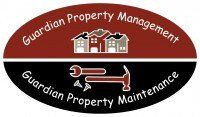How Property Managers Handle Rent Collection and Late Payments Effectively

TL;DR
Property managers enforce payment policies, send reminders, keep records for disputes, and ensure landowners can enjoy steady cash flow and peace of mind.
Property managers employ structured approaches to ensure consistent rent collection and minimize conflicts, including the following:
- Setting clear lease terms and penalties
- Sending automated pre-payment reminders
- Issuing gentle late payment reminders
- Utilizing digital tools for collection
- Imposing late fees on overdue payments
- Offering temporary adjusted payment plans
- Sending formal notices to tenants
- Initiating legal action when necessary
The Challenges of Rent Collection
Running a profitable property business largely depends on timely rent collection. However, that can sometimes be challenging, especially if you operate multiple units, live far from them, or find it cumbersome to chase tenants who ignore due dates.
If this sounds like something you experience frequently, you may benefit from hiring an experienced property manager to assist you with rent collection and late payments.
Why Hire Property Managers for Rent Collection and Late Payments?
Enforcing policies related to rent payment while maintaining good terms with tenants takes a lot of tact and professionalism. And that is exactly what property managers are good at.
They usually follow a structured approach for rent collection and associated communication, so tenants don’t miss due dates, and you have a steady cash flow.
Besides handling rent collection and payment reminders, property managers document all communications efficiently. This provides protection in case of a dispute or comes in handy if you have to take legal steps against a tenant.
Most importantly, it relieves stress and brings peace of mind.
Common Strategies Property Managers Use to Handle Rent Collection and Late Payments
The following strategies ensure consistency and accountability from tenants, reduce the need for repeated follow-ups, and make rent collection smooth and swift:
- Clear Policies: For starters, property managers frame lease agreements with clearly defined and enforceable rent collection and late payment policies. They include accepted payment modes, due dates, grace period (if applicable), as well as penalties like fines and lawful actions.
- Pre-Payment Reminder: Property managers generally use software solutions to send automatic emails or texts to remind tenants of approaching payment dates. This helps tenants to stick to deadlines, schedule payments, and avoid penalties.
- Friendly Late Payment Reminder: In case of late payments, property managers usually send tenants gentle reminders, as the reason is often a simple oversight. They also include information on how the payment can be done quickly and easily, so as to avoid unnecessary escalation.
- Automatic Rent Collection: Property managers use digital tools like automated bank withdrawals, online payments, and mobile apps to manage payments. This way, payments get processed faster, late fees drop, and keeping track of finances becomes simple.
- Enforcement of Late Fees: If property managers find that there are late payment dues despite sending reminders, they might impose fines as per the agreement. Such penalties encourage renters to make timely future payments and also compensate you for having to deal with delayed cash flow. Late fees are set in line with local laws, and the charges are communicated in writing to the tenant as well.
- Temporary Adjusted Payment Plan: If a usually-responsible tenant is dealing with temporary financial troubles, property managers might recommend a temporary payment arrangement that is more suitable. In such a scenario, the rent overdue might be divided into small, manageable amounts to be paid over time. The full payment’s timeline can also be tweaked with your approval.
- Formal Notice: If the above strategies fail, property managers will send the tenant an official request to pay off the outstanding rent or vacate the premises. A date will be specified for the tenant to quit the rental in accordance with local rules. This notice will give the tenant a final chance to pay up before facing legal action.
- Legal Action: Legal action is typically the last resort when it comes to tackling rent collection and late payments. While it can be overwhelming to handle on your own, property managers ensure the process is carried out correctly and in compliance with state and local regulations.
Conclusion
Running a rental business can be challenging, particularly when balancing tenant relations and profits. This is why property managers are the best bet for dealing with rent collection and late payments. Partnering with a reliable
with local expertise can help you outsource operational burdens and keep administrative and legal worries at bay.
Breathe Easy About Rent Collection with Guardian Property Management
If you need efficient rent collection services in Minnesota,
can help. We handle reminders, formal notices, and evictions, so you don’t have to chase tenants or deal with stressful conversations. Beyond rent collection, we also take care of tenant screening, lease drafting, and tracking financials.
If you find yourself needing some rental business guidance,
at
or call 651-287-2011.
Address: 3001 Broadway St NE Suite 605, Minneapolis, MN 55413
FAQs
Q. 1 How do property managers handle rent collection each month?
Ans: Property managers set clear payment policies, monitor payments, send reminders, enforce late fees, and facilitate automatic payments. They may also adjust payment plans or send formal notices if needed.
Q. 2How do property managers handle tenant disputes?
Ans: Property managers act as neutral mediators between landlords and tenants. They address complaints, clarify lease terms, and resolve conflicts professionally while following legal requirements.
Q. 3 Are property managers responsible for bad tenants?
Ans: While property managers screen tenants to reduce risks, they cannot control a tenant’s behavior. However, they handle issues professionally, enforce lease agreements, and take legal action if necessary.
Q. 4 Can property managers help with evictions?
Ans: Yes, property managers can handle the eviction process on your behalf. They ensure all notices are properly issued, follow local laws, file necessary paperwork, and coordinate with legal professionals if needed.















